Apple TV+ is back with another spectacular series: the long-awaited Chief of War finally premieres on August 1st.
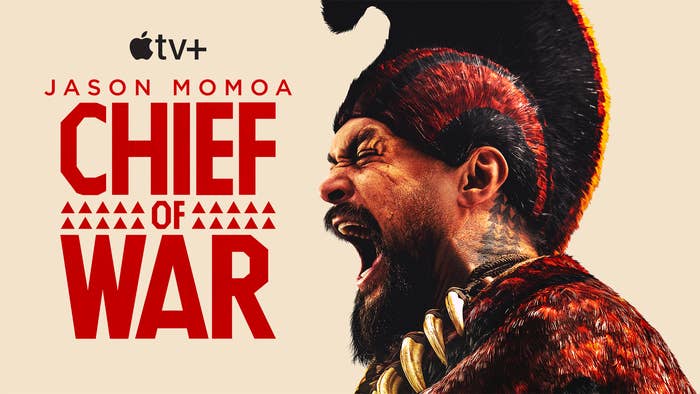
Chief of War is set in the 1800s and tells the story of the unification of the Hawaiʻian islands from an indigenous perspective as they unite against the threat of colonisation. Jason Momoa leads this series along with incredible co-stars such as Luciane Buchanan, Temuera Morrison, and Te Ao o Hinepehinga.
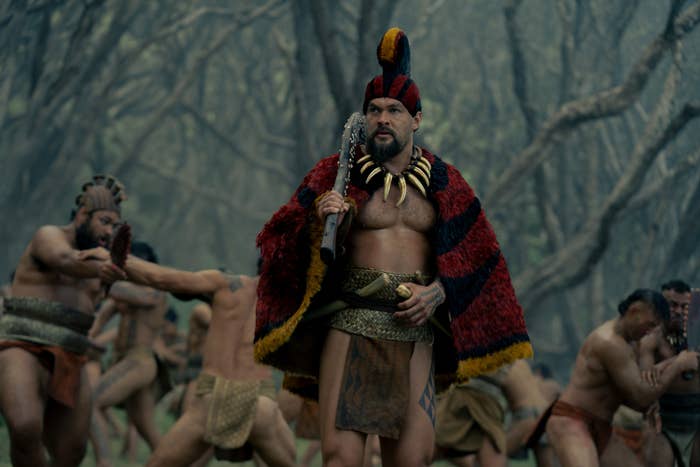
Speaking to Luciane and Te Ao, we discuss the emotional weight of representing Polynesian women on screen and the sisterhood that formed behind the scenes.
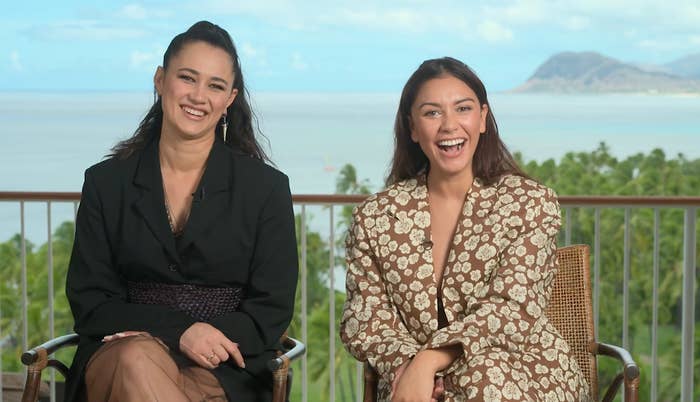
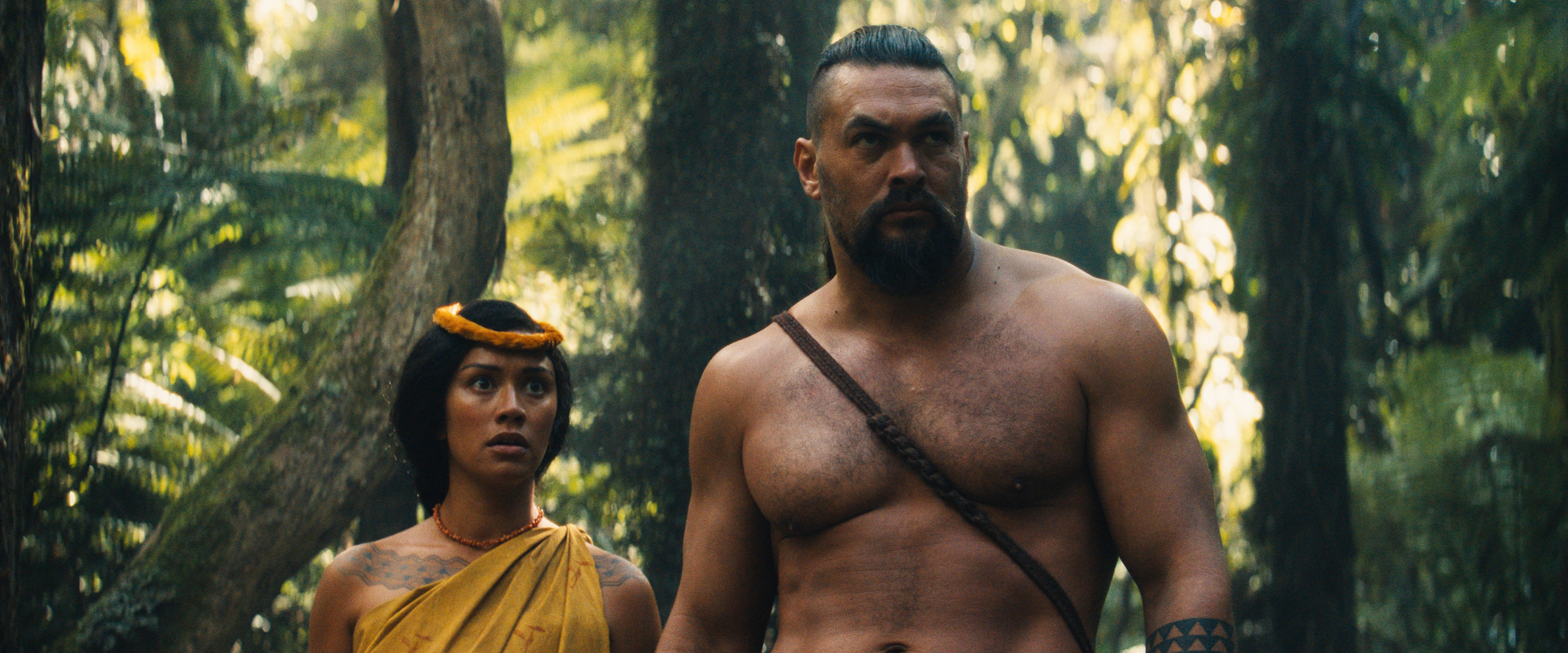
With period pieces like this, we’re in the 19th century, and people assume that the men are the dominant force, the men rule everything, but in this series, to me, it’s the women who are holding it down. Can you speak to the strength that you put into these characters to build such strong women?
Luciane: Well, I think what was really cool is that Te Ao and I lived with each other twice because we were in different locations, and we were like, “We don't like the hotels” because every time we go down to the lobby it's like our entire crew and they’re like “come have a drink” and we’re like hmm.
Te Ao: We were trying to be really well behaved, but honestly, twist my rubber arm when it comes to hanging out with the crew – they’re just the coolest people!
Luciane: And we had so much work to do. But we had a long conversation at night about how there are only a few female characters in the show, when you see everyone's headshots on the wall, you’re like, “Okay, 1,2,3,4”, that’s it. Even Mainei (Kinimaka), who plays Heke, we wanted to make these women feel like individuals. We're not playing the same women, because we all have such different circumstances and different journeys. For Mainei, it’s her becoming a warrior, for you [gestures to Te Ao] haha so much actually.
Te Ao: It’s hard to pin that girl down; she’s going through a lot. With Ka’ahumanu [gestures to Luciane] to go from this freedom of curiosity and freedom of potential to being in such a position of strength and responsibility, but also being given a king who wanted to feed that and foster that.
Luciane: It was always kind of like this push-pull of being dutiful and following what my dad wants me to be, but also like what she wants in life. What is actually out there, and what's that curiosity of the outside world? We worked so hard together, even though our storylines didn’t cross over.
Te Ao: We literally did two scenes together in the entire show, and only one of them made the show. I remember reading the script and then thinking, have they just refused to put us in a scene together because they've seen what we're like off screen, and they're like, “Absolutely, nothing will get done.”
I will say that my favourite thing it is amazing to be able to represent what it is to be a Polynesian woman because yes, it is – like you said – male-dominated and patriarchal, but as Polynesians, we are very matriarchal. And it depends on what island you go to; you get different varying degrees of what a matriarchal society can look like. It’s really exciting to show the world what that is because I know it's prevalent in so many different countries and cultures, and it's just not something we get to see very often. Wāhine for the win!
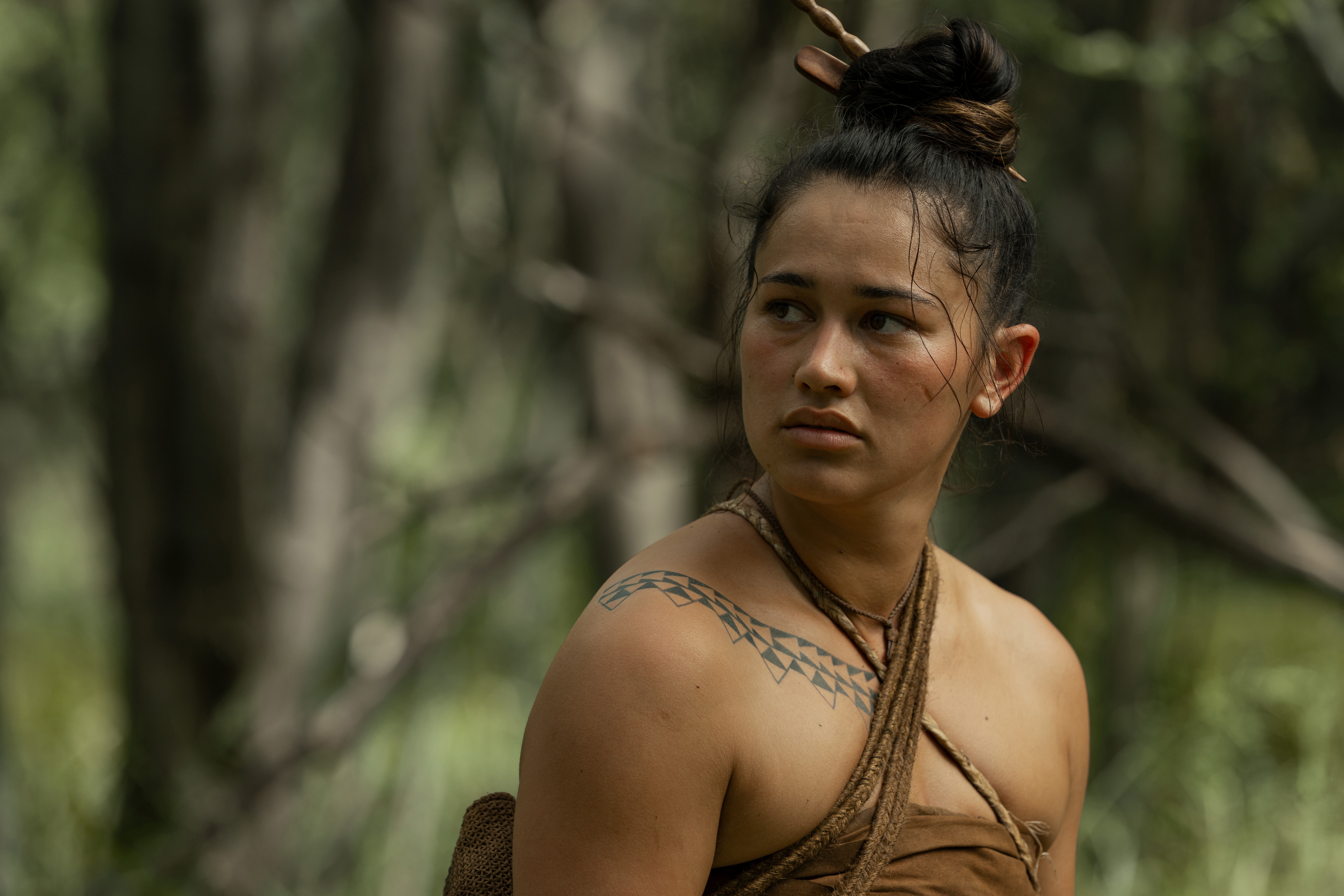
Speaking about Polynesian representation, a lot of this production took place in New Zealand. What was it like going onto a giant set like this and seeing loads of people who look like you and have a similar background to you, because I’m sure that comfort hit instantly.
Luciane: It’s like night and day.
Te Ao: Haha, it really is!
Luciane: Like, it's so nice and you don't have to explain anything: all you say is, "I'm Tongan, or I'm Maori", and people are just like, “Gotcha.” My experience working in the US is like, “I’m Tongan,” and they’re like, “Tongan?” and I’m like, “you know Fiji,” but I’m also from New Zealand, and it’s just confusion for them. So it’s just so refreshing not to be the outsider trying to fit into these roles. We know who these people are, we’ve done our research, and for a lot of the Hawaiʻian cast, this is the first time they've been on a set with brown faces. We kind of get that back home in some cases, but not on this scale.
Te Ao: I think it really made the job easier. When you look around and you see nothing but familiar faces and you feel such a familial connection – it really grounded the show and its truth. It inspired a lot of us to keep going when we had nothing left in the tank
You end up using less of your brain to appease people that don’t inherently understand you, and get to focus on the work – that’s why we can see the depth in these characters flourish through incredible acting.
Luciane: Thank you, that’s so nice.
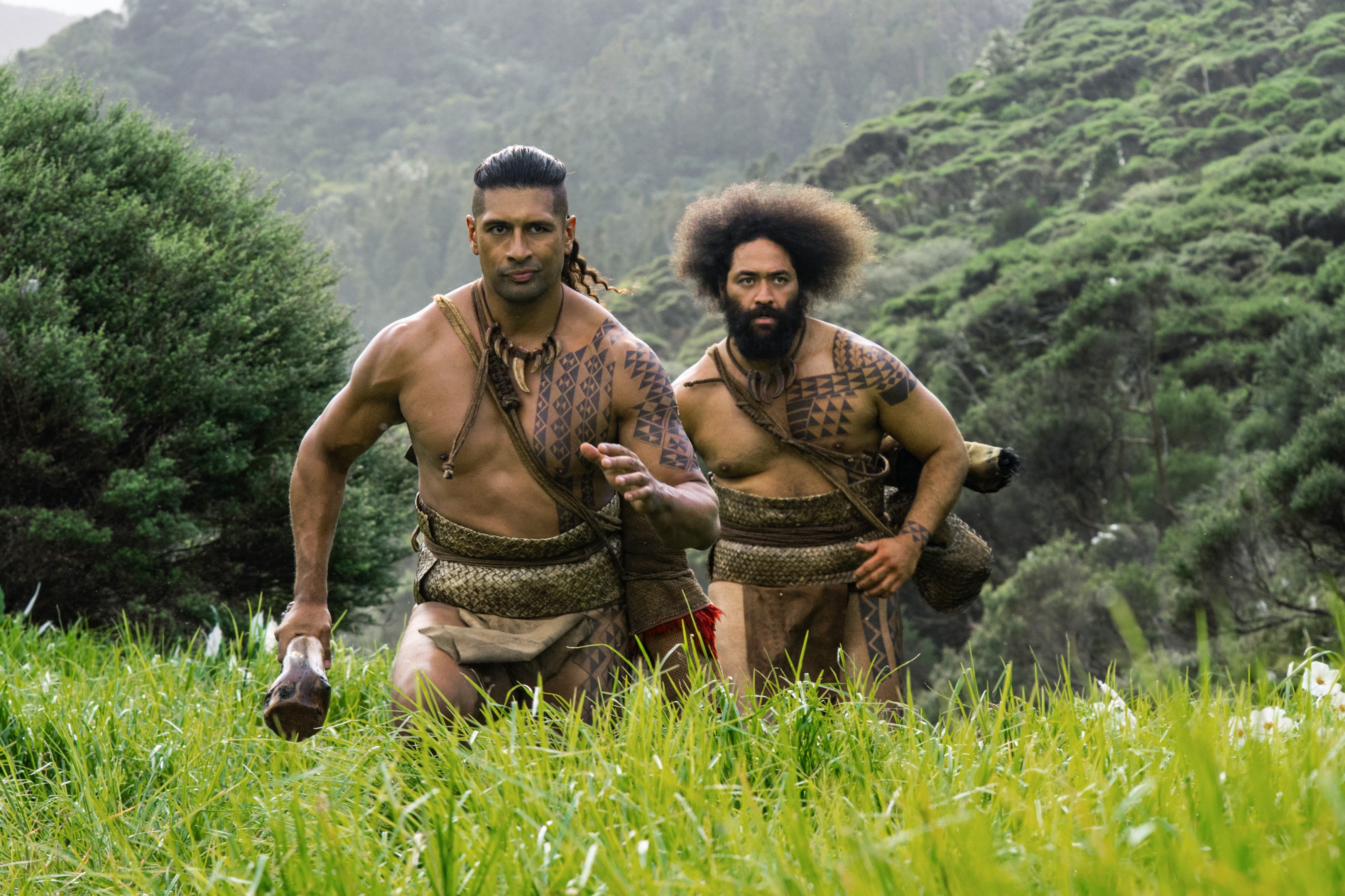
Lucianne, when we met two years ago, we bonded over our love of Beyoncé. As you’re both playing two incredible women, which Beyoncé song would represent these two characters?
Luciane: You know, there are two because I remember Renaissance just came out that summer before we started shooting, and we were all just like, “What is this album? I need more of it.”
Te Ao: it was on repeat!
Luciane: I had a script folder and I liked to put, "Category: Bad Bitch I’m the bar” on it. So I guess “Alien Superstar” but also “I’m that girl”. There’s just something about her music that makes me feel a certain type of way. She is the queen, so we all must bow down, and if there was a day I didn’t feel queen-like, I just put that on in the makeup truck, and my poor makeup artists are like “Again?” and I’m like, "No, this is the remix, it’s different!"
Te Ao: They don’t understand she can be on repeat! Funnily enough, “I’m That Girl” was mine, everything she says in that song, I was like, "That’s Kupuohi, 100% I am that girl."
Luciane: I’m the only one!
Te Ao: I am that b! She and I think Rihanna are the ones I was bringing, because I was just mana wāhine screaming from the rooftops!
Luciane: The funny thing about Te Ao is that she would do a scene and she’s like, “I’m this tough person,” and then she’ll be like, “Oops, sorry I forgot this thing,” and you see the switch. I think that’s very Beyoncé because Beyoncé is very soft-spoken, but when she’s on the stage, you’re like, "Wow, who are you?"
Sasha Fierce, you both had to tap into your Sasha Fierce.
Te Ao: That might be the greatest compliment I’ve ever had!
Lucianne: We can go home!
Te Ao: I can die happy!
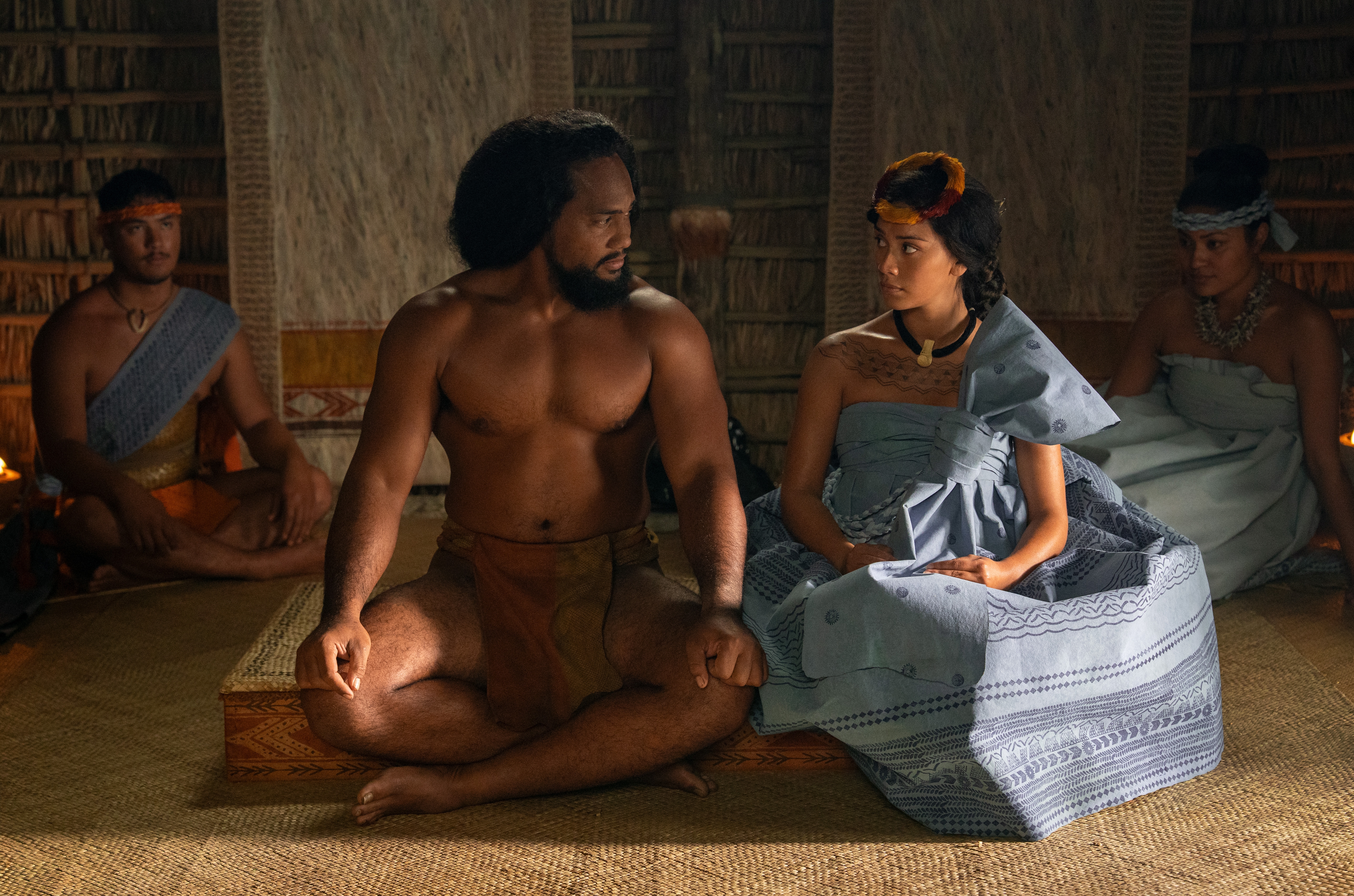
Stream the first two episodes of Chief Of War on Apple TV+ on August 1st!
Thumbnail credits: Kevin Mazur / WireImage for Parkwood / Getty Images
